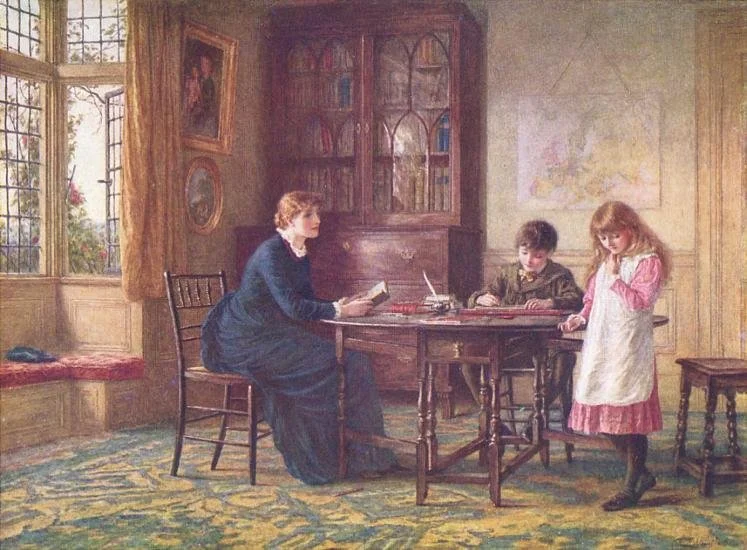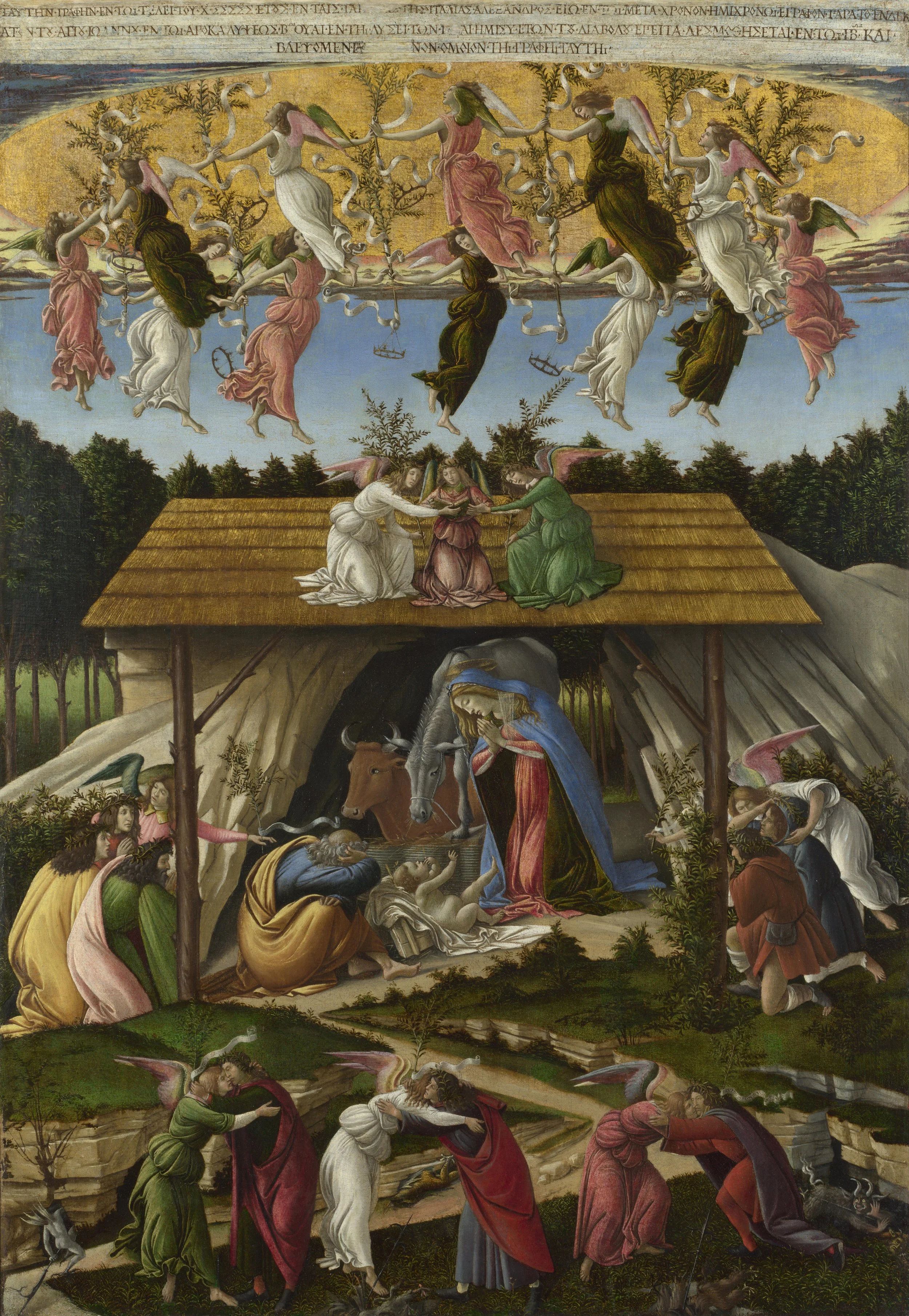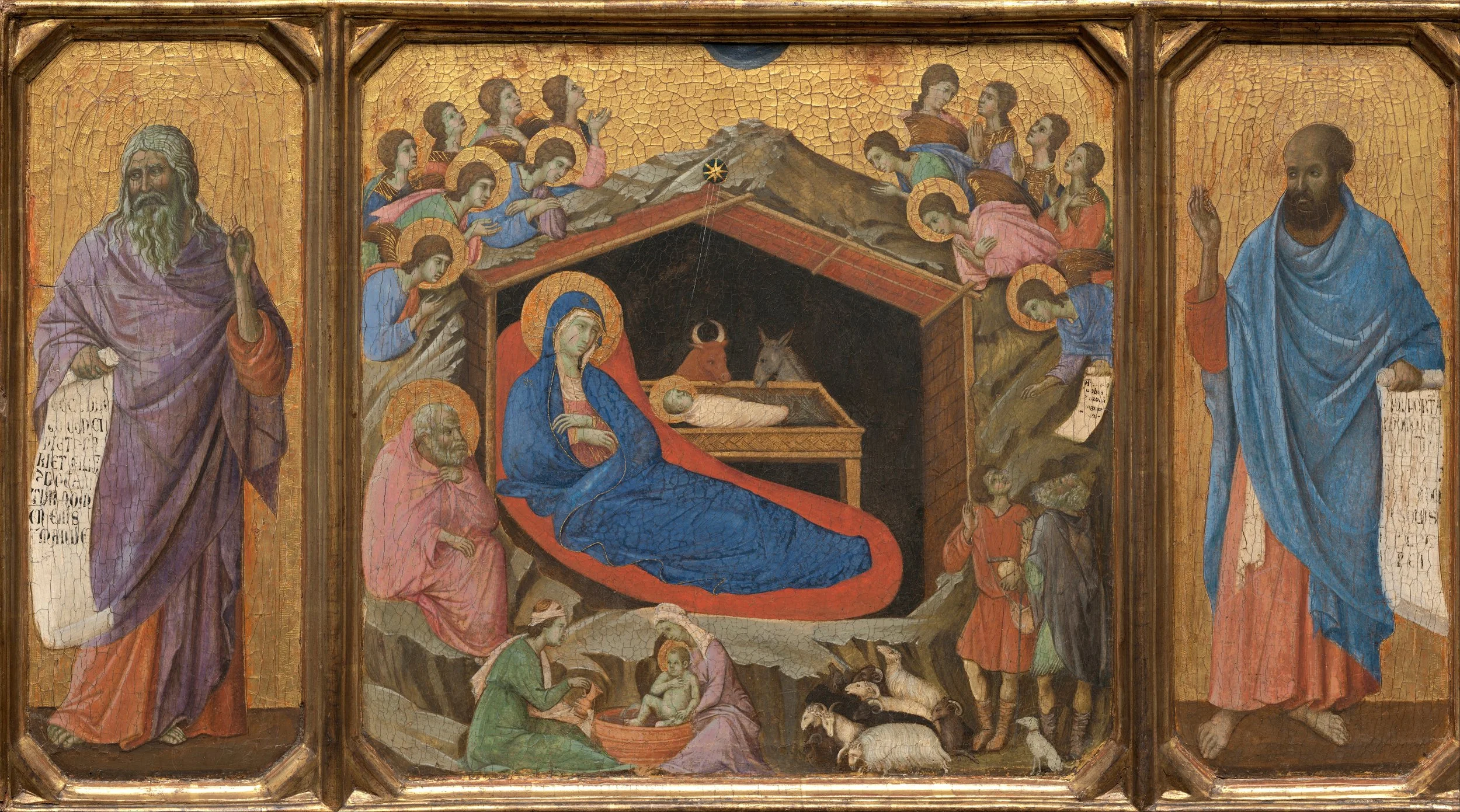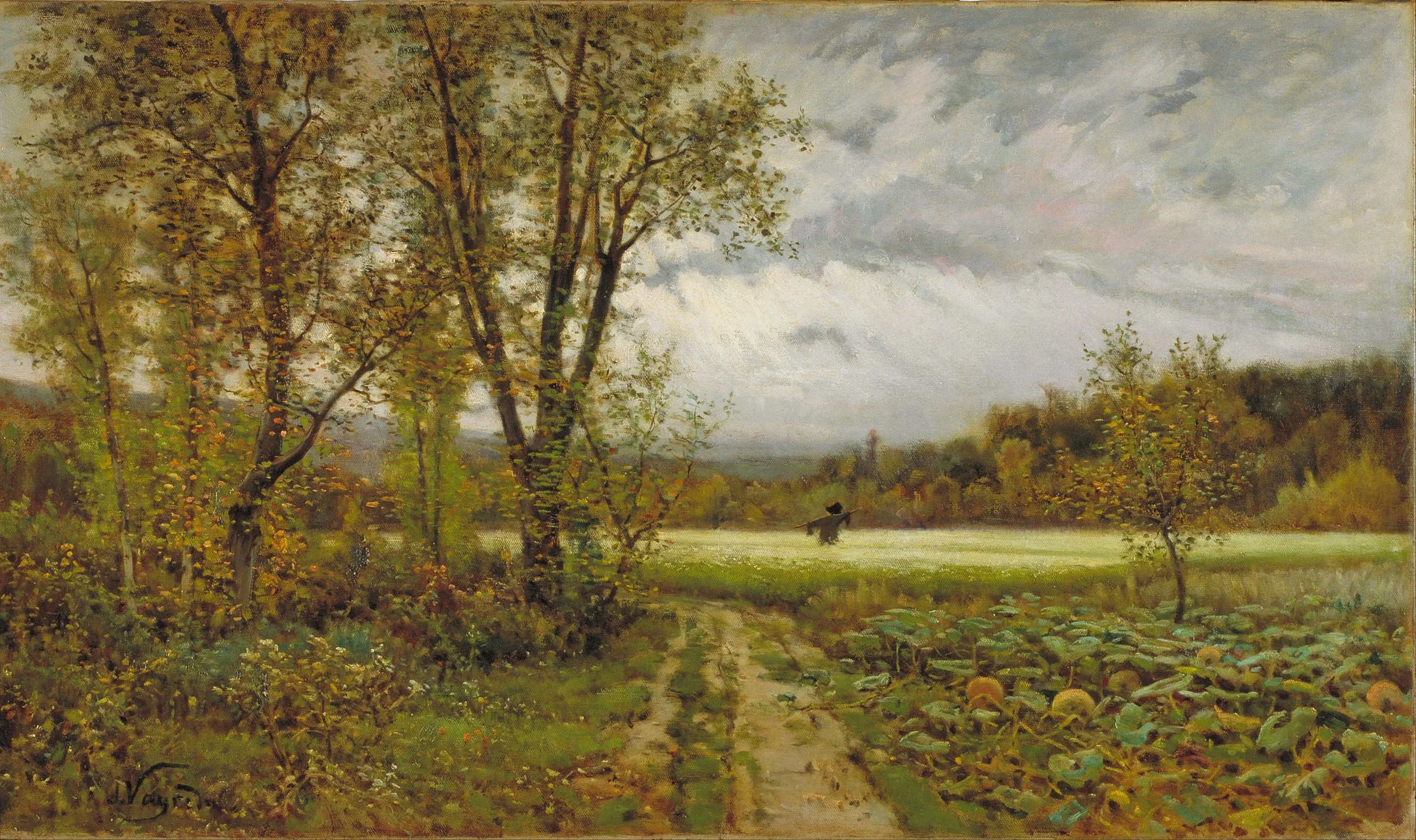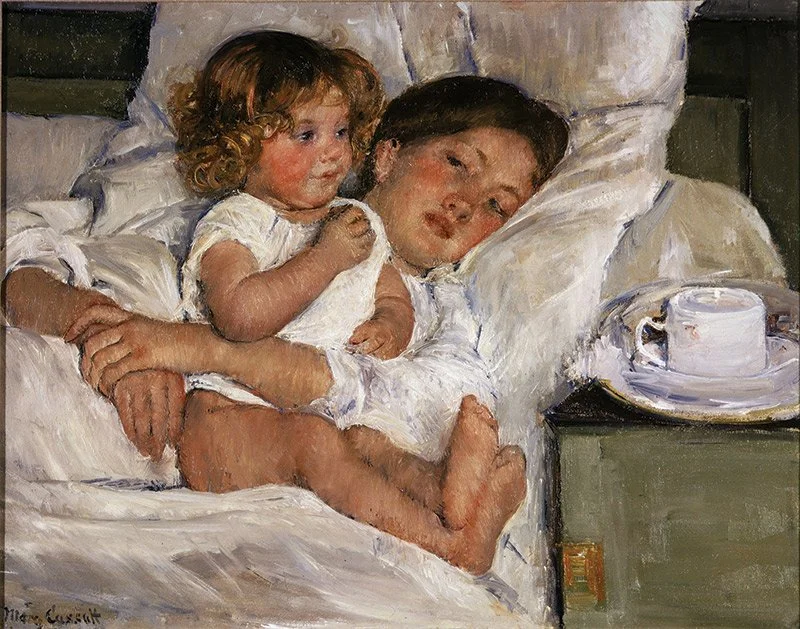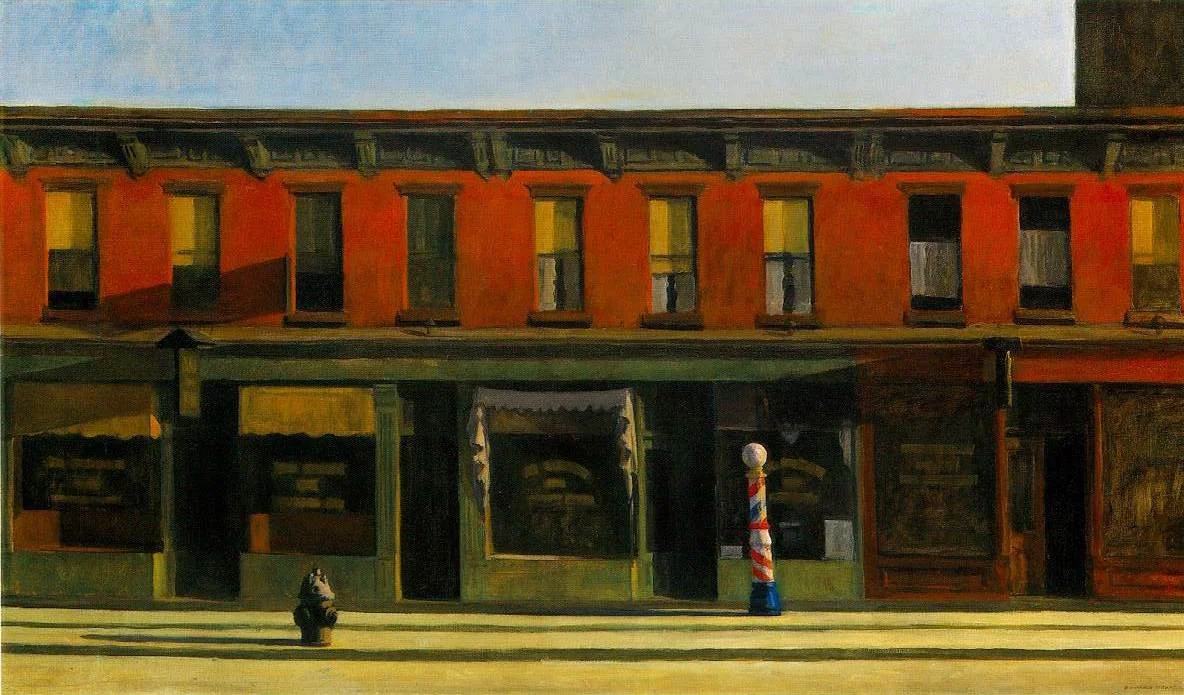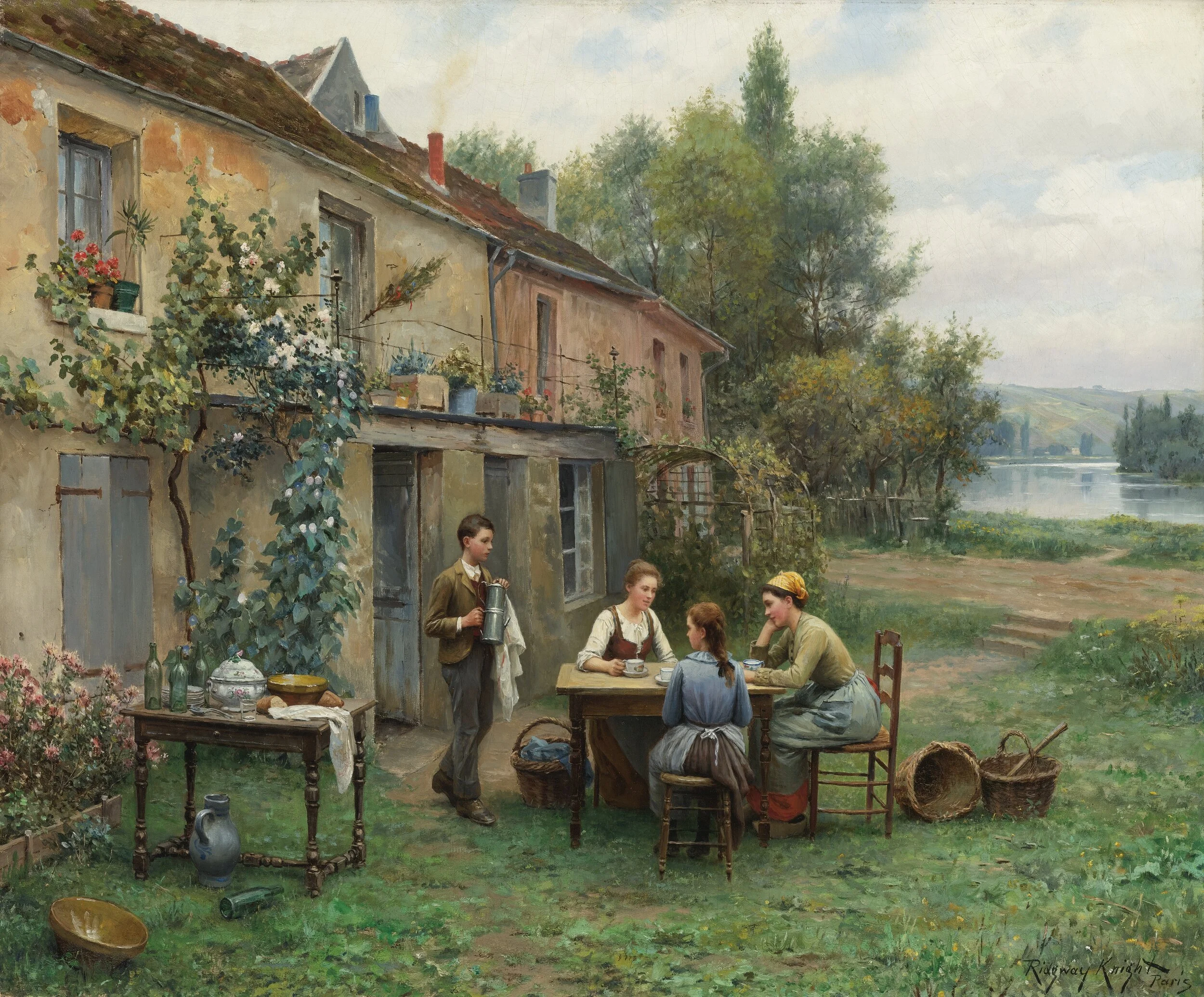It is easy to expect gifts from neighbors and loved ones as if they are our due. And taking these gifts for granted makes us forget that community must grow naturally from tiny seeds first before it can bear fruit, and just like the time and immense nutrition that tomatoes require to not just grow but turn deep red, community requires a great deal of tending, too, before it bears that fruit.
Read MoreHere is the truth perceived by Canute and manifested by Jesus on the Sea of Galilee: there is a King and His laws still stand. There is order in this world. Tides come in and go out as usual. Storms rage and storms cease. And none of this is accidental. It’s all carried out by the decrees of the Lord.
Read MoreWhile there are no “quick” fixes for our modern educational woes, there is a relatively easy-to-implement pedagogical method that can be used in any number of circumstances. This method is the art of narration. If you have dabbled in the world of Charlotte Mason at all (or perhaps you’ve dived in head first), narration is not a new idea. In fact, it is one of the primary tenets of the Englishwoman’s philosophy of education. Reading about it from her own works or learning about it from Karen Glass in her excellent book Know and Tell will quickly convince you that narration is some kind of magical antidote for our modern educational woes.
Read MoreA different piece of artwork for each day of the week depicting the Nativity of our Lord and excerpts from the daily readings according to the historic lectionary.
Read MoreA different piece of artwork for each day of the week depicting the Nativity of our Lord and excerpts from the daily readings according to the historic lectionary.
Read MoreIt’s that time of year again: the time when everyone is talking about being thankful. It strikes me every year that we, who live the most decadent lives of any civilization in history, have set aside only one day to be thankful for all that we have…
Read MoreWe ought to practice some discretion and recognize that not being Penny Pinterest is not a sin. Moderation in all things. We don’t need permission to sit down for a rest, to spend a quiet moment with a good friend, to take a shower that lasts longer than four minutes. Taking care of our own bodies and souls is not simply today’s poorly termed “self-care”. It isn’t a form of the hilarious and obviously excessive “Treat-Yo-Self” practice from that popular TV show. It’s appropriate and proper for both the woman and those the woman is caring for. Rest is as necessary and good as the work we must do.
Read MoreI would guess that if you’re a Christian parent during these troubling days, there is one question you have definitely struggled with: How do I introduce smart phones, social media, and screens in general to my kids? I know you’ve asked this question because every parent I talk to wonders about it, whether her child is three years old or fifteen. The problem is not going away and there is no easy solution.
Read MoreAn updated introduction to the large world of “classical education”…
Read MoreThe celebration of the Annunciation of our Lord approaches quickly on March 25th and Good Friday follows soon after. Not long after that, my own child will be born. So Titian’s beautiful and heart-rending portrayals of the Annunciation and Christ’s suffering in his two works from 1557 and 1547 respectively immediately caught my attention during a recent perusal of artwork for the website…
Read MoreWalking provides you with intimate knowledge of your own place and facilitates interaction with your own people. It is exactly these kinds of relationships that need to be formed or healed if we are to recover a common culture and attitude of civility toward our fellow Americans.
Read MoreSo, ultimately, what in the world does love have to do with education? A lot, actually. It has so much to do with education, in fact, that I think it’s the key link, the place we should be examining most closely. Simply put, we postmodern Americans have believed a great lie. We have believed that education would make our pocketbooks thicker but should do nothing to enrich our hearts.
Read MoreDenying oneself, especially in this physical way, is an essential practice of Christianity that we have largely lost. Lent begins today, and it is time for us to return to the spiritual discipline of fasting.
Read MoreThe Play’s the Thing is a podcast produced by the Circe Institute’s podcast network Close Reads. The rotating hosts dive into a Shakespeare play for a number of episodes. I recommend the five episodes they spend on Much Ado About Nothing. These episodes include all of the best characteristics of a favorite college course or lecture series, while also managing to entertain. And they are completely free.
Read MoreThe difference, though, between the birth of a child and nearly all other medical events, is that giving birth is a natural process that a woman’s body is built for. Unlike a disease, a broken bone, cancer, or a heart attack, becoming pregnant and giving birth is something every healthy woman’s body aims to achieve on a monthly basis. Entire organs and systems within her body exist to build and nurture new life. Pregnancy and childbirth aren’t maladies. Rather, these incredible experiences are the healthiest possible expression of a woman’s liveliness.
Read MoreJ.D. Harding made a strong argument for general artistic education. A mind can only be fully developed once it has studied some form of art, even simple sketching. He goes on to argue that one cannot be fully alive to the influence of nature’s beauty without the medium of art, and claims that those who have not studied art see the beauty of creation only “through a glass darkly.”
Read MoreThe meal’s place in the life of a family and a community must be guarded as a sacred event.
Read More

